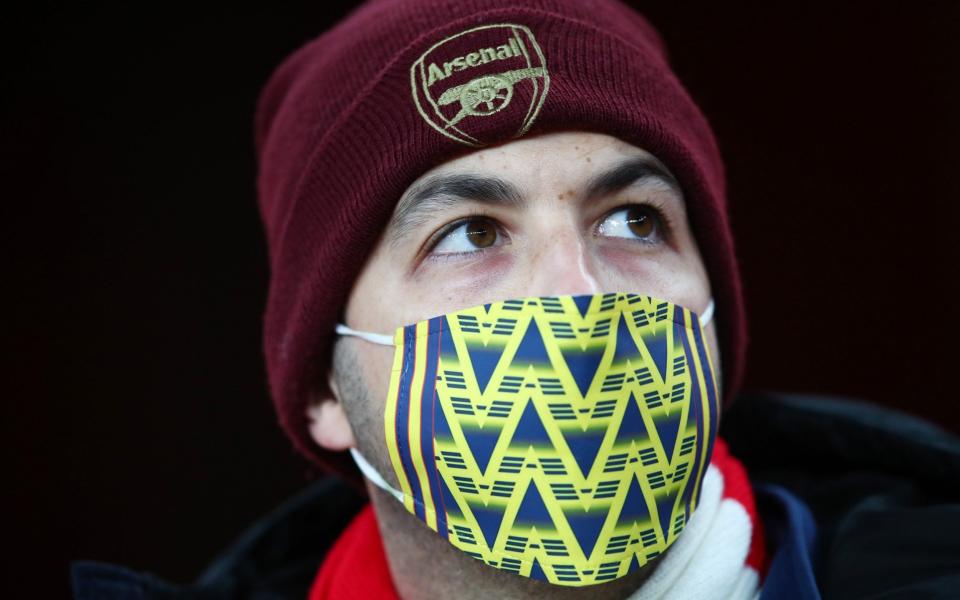Fans will have to wear masks on return to Premier League stadiums

Masks are to be made mandatory for spectators at Premier League stadiums – even when they take their seats – in beefed-up Covid-19 guidance to clubs.
A protocol developed by top-tier safety officials also goes beyond ministers’ advice on temperature checks, with all fans now due to be tested from the weekend.
Regulation for the first vaccine has also turbocharged the league’s hopes of boosting crowd numbers into the tens of thousands in the coming months. Clubs have set a target of getting their stadiums at least a third full before May.
It was disclosed last week that the league was planning to go beyond the Government’s so-called stage-five guidance, which was shared with sport on Monday.
Clubs are given the freedom to tighten measures even further, using the league’s guidelines as a starting point. Fans will also be warned of the increased risk of transmission caused by singing and shouting and will be asked to act responsibly.
Chelsea are among a host of clubs to have taken the decision with their safety advisory groups last week that mask-wearing would be a rule at all times.
The Premier League blueprint was agreed by all 20 executives at a meeting on Thursday, but will not be shared publicly to avoid causing confusion when clubs announce their own plans.
West Ham’s match at home to Manchester United on Saturday will be the first in the Premier League to welcome spectators since March. Others are poised to follow over the weekend, including the Tottenham v Arsenal derby on Sunday.
The mask rule will apply at all times during entry and exit of stadiums and the same social distancing rules will apply as is set out in Sports Grounds Safety Authority’s rules.
The Premier League will also commission epidemiological experts along with government advisers to model how the vaccination programme could affect the return of supporters. For example, once all the population aged over 50 is vaccinated, to what extent will that allow stadiums to be full.
Those rules also state: “Singing, shouting and physical activity increases the risk of transmission through small droplets and aerosols. If singing is expected to take place, spectators should be reminded of the risks. The cumulative effect of aerosol transmission means the more people involved, the higher the risk of transmission.”
The protocols have been in the planning since September and have involved the Premier League, clubs, local councils and safety groups. The Premier League hopes its meticulous safety precautions will allow more fans to return to stadiums sooner rather than later.
The Government will review its tier system on December 16, which may lead to more Premier League clubs being allowed to admit fans. Currently, no professional club is in Tier 1, where capacities are set at a maximum of 4,000.
Half of Premier League clubs are in Tier 2, where capacities cannot go beyond 2,000, with the other half in Tier 3, where spectators remain barred.

